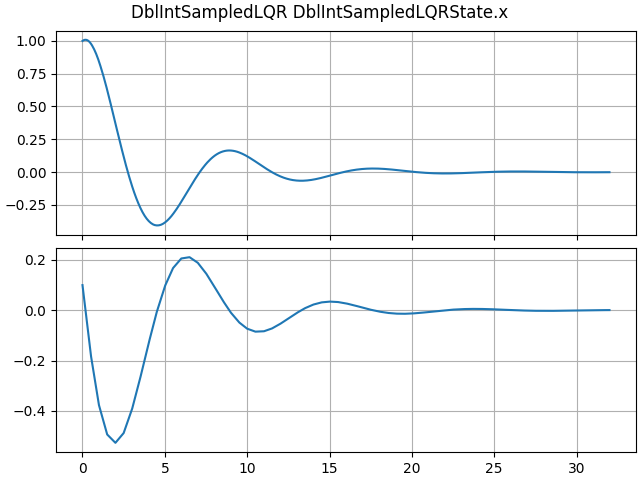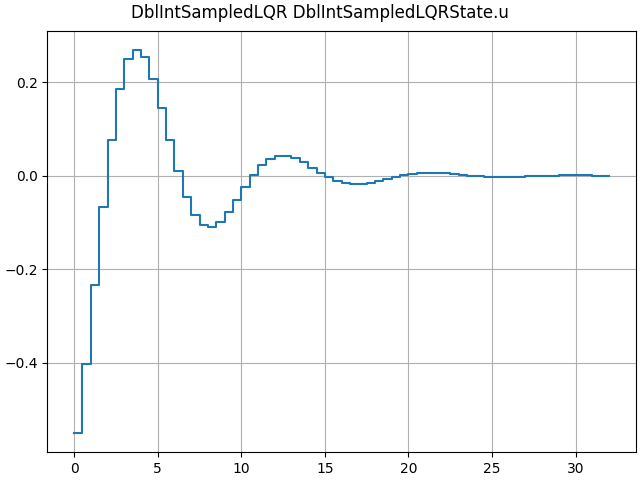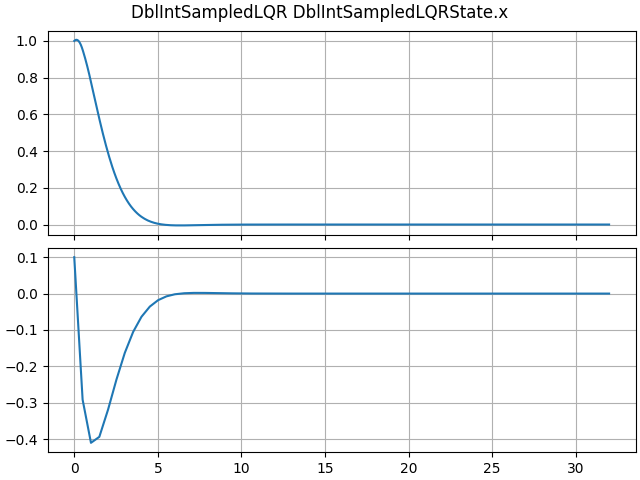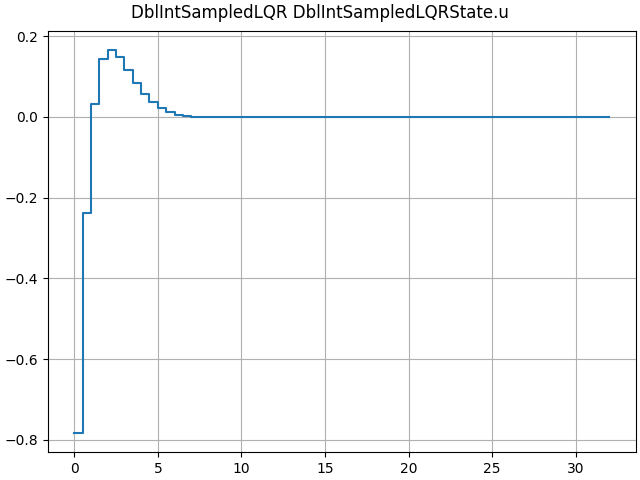Note
Go to the end to download the full example code.
Discrete Time LQR¶
import numpy as np
from _sgm_test_util import LTI_plot
from matplotlib import pyplot as plt
import condor as co
class DblIntSampled(co.ODESystem):
A = np.array([[0.0, 1.0], [0.0, 0.0]])
B = np.array([[0.0], [1.0]])
K = parameter(shape=(1, B.shape[0]))
dt = parameter()
x = state(shape=A.shape[0])
u = state(shape=B.shape[1])
dot[x] = A @ x + B @ u
To implement the periodic sampling, we use an event with
at_time with a slice specification, starting at time
0 and occurring every dt time units without end.
Now declare the trajectory analysis to simulate
class DblIntSampledLQR(DblIntSampled.TrajectoryAnalysis):
tf = 32.0
initial[x] = [1.0, 0.1]
# can initialize for aesthetics, but zero-crossing at t=0 updates it
initial[u] = -K @ initial[x]
Q = np.eye(2)
R = np.eye(1)
cost = trajectory_output(integrand=(x.T @ Q @ x + u.T @ R @ u) / 2)
class Options:
adjoint_adaptive_min_steps = False
state_max_step_size = 0.5 / 8
adjoint_max_step_size = 0.5 / 8
dt = 0.5
sim = DblIntSampledLQR(K=[0.5, 0.5], dt=dt)
LTI_plot(sim)
Determine the optimal gain by embedding the trajectory analysis in an optimization problem:
class SampledOptLQR(co.OptimizationProblem):
K = variable(shape=DblIntSampledLQR.K.shape)
params = parameter.create_from(DblIntSampled.parameter, K=K)
sim = DblIntSampledLQR(**params)
objective = sim.cost
class Options:
__implementation__ = co.implementations.ScipyCG
lqr_sol = SampledOptLQR(dt=dt)
print(lqr_sol.K)
/opt/hostedtoolcache/Python/3.12.12/x64/lib/python3.12/site-packages/condor/implementations/iterative.py:484: RuntimeWarning: Method CG cannot handle bounds.
min_out = minimize(
[[0.66131423 1.32662666]]
Compare with the solution from the discrete algebraic Riccati equation:
from scipy import linalg, signal
Ad, Bd, _, _, _ = signal.cont2discrete(
(DblIntSampledLQR.A, DblIntSampledLQR.B, None, None), dt
)
S = linalg.solve_discrete_are(Ad, Bd, DblIntSampledLQR.Q, DblIntSampledLQR.R)
K = linalg.solve(Bd.T @ S @ Bd + DblIntSampledLQR.R, Bd.T @ S @ Ad)
print(K)
[[0.65140165 1.31420219]]
plt.show()
Total running time of the script: (0 minutes 23.350 seconds)



